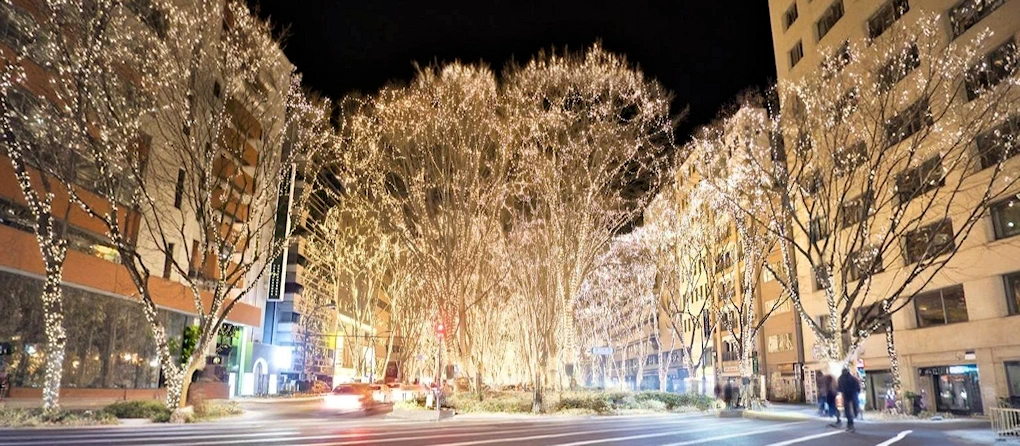2026 New Years Day is January 1, 2026 Thursday (Plan Ahead: Expect Traffic, Higher Fares and Hotel Rates)NEW
-
January 10, 2026, Saturday: All Day (in 8 Days):
Light the Hope Walk for Leukemia Awareness (For Those Fighting, Remembered, and Yet to Be Diagnosed) -
January 12, 2026, Monday: All Day (in 10 Days):
2026 Seijin no Hi, or Coming of Age Day: a Japanese National Holiday Held in January -
January 19, 2026, Monday: All Day (in 17 Days):
Martin Luther King Jr. Day (Government Offices, Banks, and Schools Closed) -
January 30, 2026, Friday (in 28 Days): TBA
2026 The State of California's Fred Korematsu Day of Civil Liberties and the Constitution - Jan 30th -
February 14, 2026, Saturday: All Day (in 43 Days):
Valentine's Day: Top Tips & Ideas (A Day to Express Feelings of Love, Appreciation, & Affection for Romantic Partners, Family Members, & Friends) -
February 16, 2026, Monday: All Day (in 45 Days):
2026 Presidents Day: Honoring the Leadership and Legacy of America’s Presidents (Government Offices and Banks Closed; School Closures Vary) View All Events At Location Other Events At This Location
Location
This Specific Event Date Has Passed
Upcoming Events and Dates at This Location


Date: Thursday, 1 January, 2026 Time: All Day
New Year’s Day marks the beginning of the calendar year and is one of the most important holidays around the world. In Japan, known as Ganjitsu, it is part of the larger New Year season called Shōgatsu, a time deeply rooted in tradition, reflection, and celebration. Families gather to welcome the new year with special customs that emphasize renewal, gratitude, and good fortune for the year ahead.
Date
January 1, 2026 (Thursday)
January 1, 2026 (Thursday)
Details
In Japan, the New Year is the most significant holiday of the year, often celebrated over several days (January 1-3). Many businesses and schools close so families can spend time together, visit shrines and temples, and enjoy traditional meals. The focus is on starting the year with a clean slate, both spiritually and physically, through customs that have been passed down for generations.
In Japan, the New Year is the most significant holiday of the year, often celebrated over several days (January 1-3). Many businesses and schools close so families can spend time together, visit shrines and temples, and enjoy traditional meals. The focus is on starting the year with a clean slate, both spiritually and physically, through customs that have been passed down for generations.
Japanese New Year Traditions
• Hatsumōde - The first shrine or temple visit of the year, where people pray for health, happiness, and prosperity.
• Osechi Ryōri - Special New Year’s foods served in elegant lacquer boxes, each dish symbolizing good fortune and longevity.
• Otoshidama - Gift money given to children in decorative envelopes.
• Kadomatsu & Shimenawa - Traditional decorations placed at entrances to welcome the Shinto gods and bring good luck.
• Nengajō - New Year greeting cards exchanged between friends, family, and colleagues.
• Hatsumōde - The first shrine or temple visit of the year, where people pray for health, happiness, and prosperity.
• Osechi Ryōri - Special New Year’s foods served in elegant lacquer boxes, each dish symbolizing good fortune and longevity.
• Otoshidama - Gift money given to children in decorative envelopes.
• Kadomatsu & Shimenawa - Traditional decorations placed at entrances to welcome the Shinto gods and bring good luck.
• Nengajō - New Year greeting cards exchanged between friends, family, and colleagues.
Celebrations Around the World
Globally, New Year’s Day is marked by fireworks, countdown events, parades, and resolutions for self-improvement. In many Western countries, it’s a time for gatherings, celebrations, and reflecting on the year ahead.
Globally, New Year’s Day is marked by fireworks, countdown events, parades, and resolutions for self-improvement. In many Western countries, it’s a time for gatherings, celebrations, and reflecting on the year ahead.
New Year’s Day in Japan blends cultural tradition with the excitement of a fresh start, making it one of the most meaningful and widely celebrated holidays of the year.
Because holidays often bring crowds and higher travel costs, planning ahead can make your trip smoother and less expensive.
January
• January 1: New Year’s Day - Celebrates the first day of the year.
• Third Monday in January: Martin Luther King Jr. Day - Honors the civil rights leader’s life and legacy.
February
• Third Monday in February: Presidents’ Day - Honors all U.S. presidents, especially George Washington and Abraham Lincoln.
May
• Last Monday in May: Memorial Day - Honors military personnel who died in service to the United States.
June
• June 19: Juneteenth National Independence Day - Commemorates the end of slavery in the United States.
July
• July 4: Independence Day - Celebrates the nation’s founding and the Declaration of Independence.
September
• First Monday in September: Labor Day - Honors American workers and the labor movement.
October
• Second Monday in October: Columbus Day - Marks Christopher Columbus’s 1492 landing; also recognized by many as Indigenous Peoples’ Day.
November
• November 11: Veterans Day - Honors all U.S. military veterans.
• Fourth Thursday in November: Thanksgiving Day - Day of gratitude, family gatherings, and feasting.
December
• December 25: Christmas Day - Celebrates the birth of Jesus Christ; widely observed as a cultural holiday.
January
• January 1: New Year’s Day - Celebrates the first day of the year.
• Third Monday in January: Martin Luther King Jr. Day - Honors the civil rights leader’s life and legacy.
February
• Third Monday in February: Presidents’ Day - Honors all U.S. presidents, especially George Washington and Abraham Lincoln.
May
• Last Monday in May: Memorial Day - Honors military personnel who died in service to the United States.
June
• June 19: Juneteenth National Independence Day - Commemorates the end of slavery in the United States.
July
• July 4: Independence Day - Celebrates the nation’s founding and the Declaration of Independence.
September
• First Monday in September: Labor Day - Honors American workers and the labor movement.
October
• Second Monday in October: Columbus Day - Marks Christopher Columbus’s 1492 landing; also recognized by many as Indigenous Peoples’ Day.
November
• November 11: Veterans Day - Honors all U.S. military veterans.
• Fourth Thursday in November: Thanksgiving Day - Day of gratitude, family gatherings, and feasting.
December
• December 25: Christmas Day - Celebrates the birth of Jesus Christ; widely observed as a cultural holiday.
Disclaimer: Please double check all information provided on our platform with the official website for complete accuracy and up-to-date details.
Thursday, 1 January, 2026
Event Contact
New Years DayEvent Organizer Website
Visit Organizer Website
Get More Details From the Event Organizer
Event Location Website
Visit Location Website
For More Location Details
Add Event To Your Calendar
iCalendar Google Calendar
Windows Live Calendar
Event Information Can Change
Always verify event information for possible changes or mistakes.Contact Us for Issues














